What to prune in July – experts reveal which plants you should give the chop for summer
All the plants you can prune in July
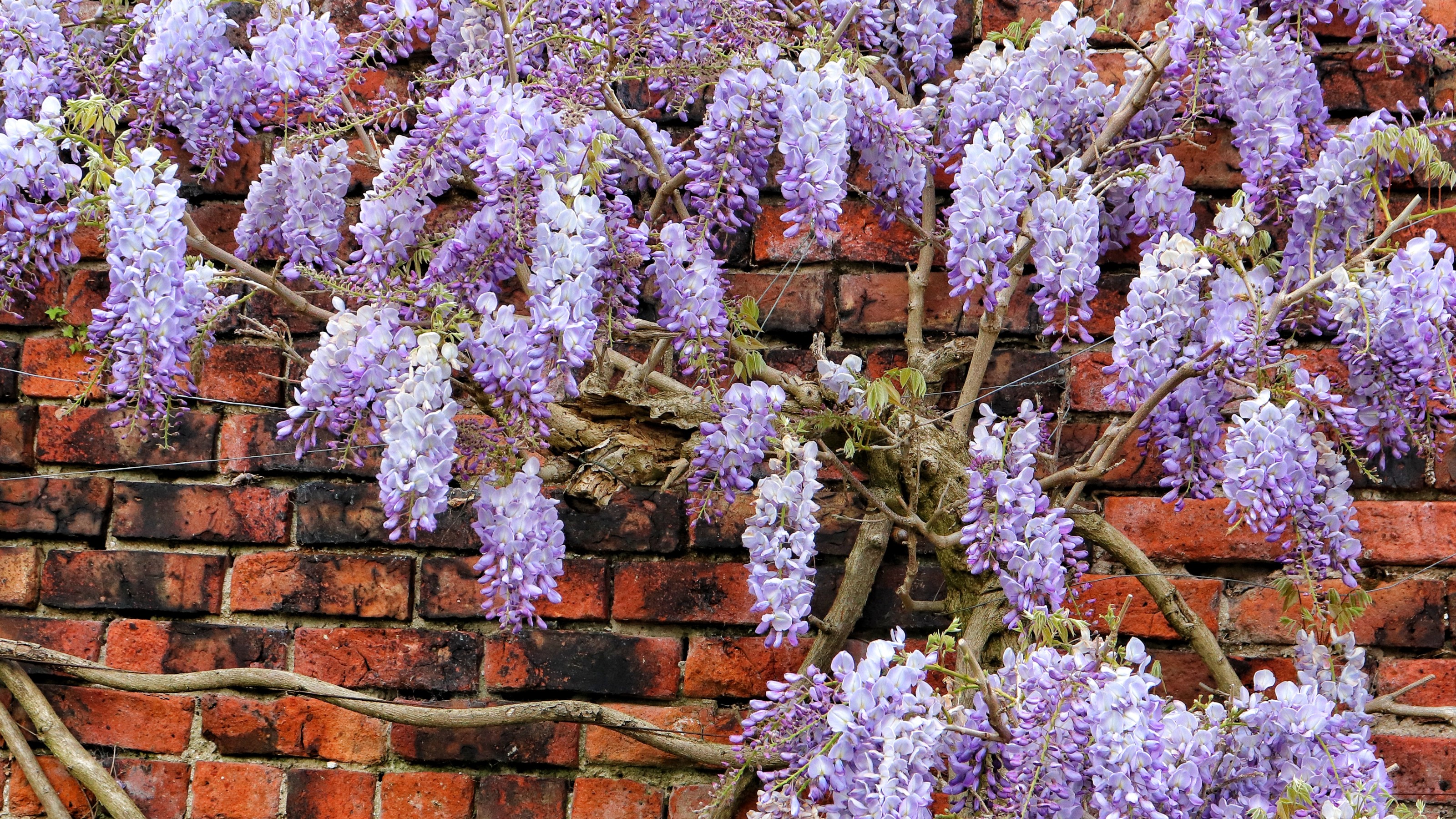

Pruning is a hot topic in the gardening world all year round, but knowing what to prune in July can be tricky – the weather is hot, many plants are in bloom, and the last thing you'll want is to disturb healthy growth and spoil your garden ideas.
It's still an important task, though, and knowing what to prune in July can set your garden in good stead for the rest of the season and the following year.
'If you want to retain a beautiful garden full of healthy plants then pruning is an essential task which should be carried out throughout the year,' says Lucie Bradley, gardening and greenhouse expert at Two Wests & Elliott.
'Pruning allows you to remove dead or diseased parts of your plants, helps you to re-shape them and encourages repeat flowering together with new growth.'

Encouraged to garden since she was old enough to walk, Lucie has been working at Two Wests & Elliott since 1997.
Originally working alongside the original founders, Mr and Mrs West, until they retired, she has now been fortunate enough to become one of the co-owners.
She’s also lucky enough to get to talk to their customers, gardeners both amateur and professional, every day of the week and is always learning as she believes that you can never know everything about gardening as it is always evolving.
What to prune in July
Now that we've established that pruning is an important task even at the height of summer, we need to work out what to prune in July.
We've asked the experts for their recommendations and tips to help us along the way.
What you’ll need

Protect your hands against thorns and other sharp pruning offcuts with these stylish gardening gloves.
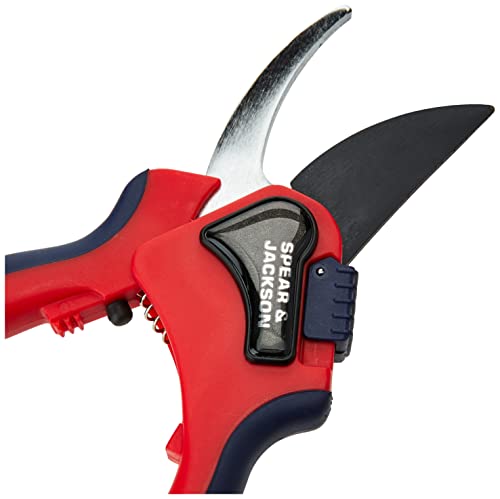
These secateurs come complete with a sap groove, shack absorber and stem crusher.
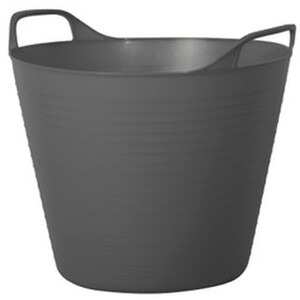
A handy garden trug to catch your clippings while you prune.
1. Evergreen hedges
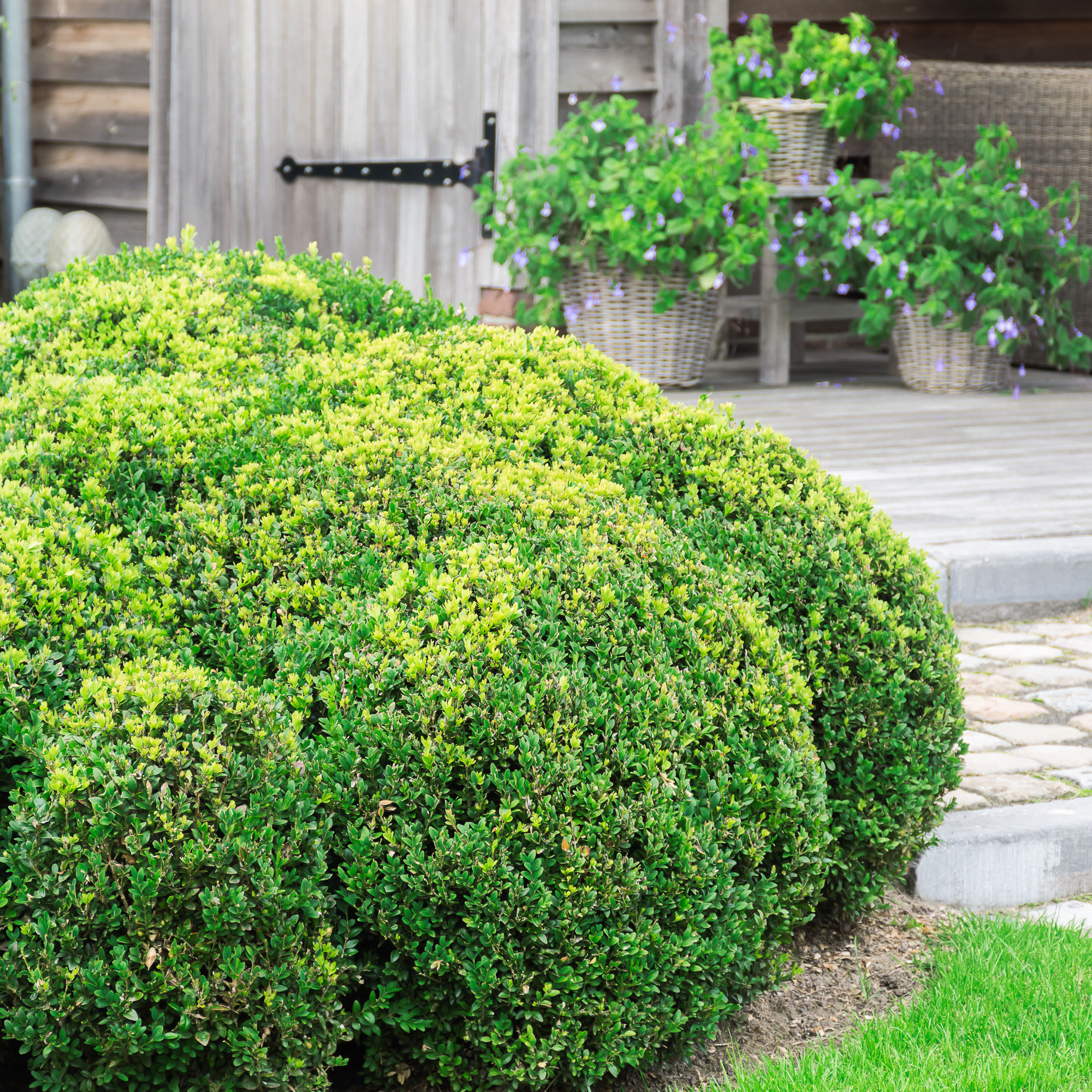
Though not all hedges should be pruned in July, some evergreen varieties can be trimmed to keep them looking neat throughout the season. Exactly when to cut back evergreen shrubs and what to prune in July will depend on the type.
Get the Ideal Home Newsletter
Sign up to our newsletter for style and decor inspiration, house makeovers, project advice and more.
'Evergreen bushes such as shrub holly, laurel and Buxus (box) hedges will grow more rapidly in the warmer weather, particularly in the days after summer rain showers,' explains Gareth Mitchell, founder of Tree2mydoor.
'The secret is staying on top of hedge cutting between May and September. Regular summer trims are a good idea to keep them looking tidy while increasing circulation and light penetration to help promote healthy, dense year-round growth.
'The longer you leave trimming hedges during the summer months, the harder your job will be later on, so little and often keeps them looking nice and uniform.'

With a background in the environmental and charity sectors, Gareth grew up in Northern Ireland where he learnt about the many different species of local plant life, developing a strong desire for the conservation of the natural environment at an early age.
He founded Tree2MyDoor in 2003 in a bid to supply greener products to consumers, and the business is now one of the UK’s leading sustainable gift brands.
2. Wisteria

'Producing cascades of fragrant flowers throughout late spring, wisteria can be pruned in late July to encourage short, flowering spurs which result in more flowers,' says Lucie from Two Wests & Elliott.
'What you are aiming to prune away in July is the whippy green shoots from this year’s growth, trimming them back to five to six inches in length. Pruning also helps to control the size of the wisteria so it doesn’t overtake your garden or house walls.'
Take a look at our full guide on how to prune wisteria for extra tips, and bear in mind that you can learn how to train wisteria for the beautiful cascade effect Lucie mentioned.
3. Plum and pear trees
Not every fruit tree can be pruned this month, but plum and pear trees fall under the list of what to prune in July – especially espalier or trained types, which also happen to be examples of plants that increase property value.
'Some fruit trees, such as plum and pear, benefit from being pruned over the summer months to help contain the size and shape of the tree, as well as allow more air and sunlight to reach the fruit so it can mature without the shade of excess branches,' explains Gareth from Tree2mydoor. 'Meanwhile, winter pruning is more about encouraging growth and the renewal of branches.
'So, removing the dead, damaged or excess wood in July will ensure your tree is looking its best and encourage a bumper harvest of fruit in late summer to early autumn, year after year. But remember not to go overboard – as a rule, we recommend cutting no more than 20 per cent of the tree’s branches.'
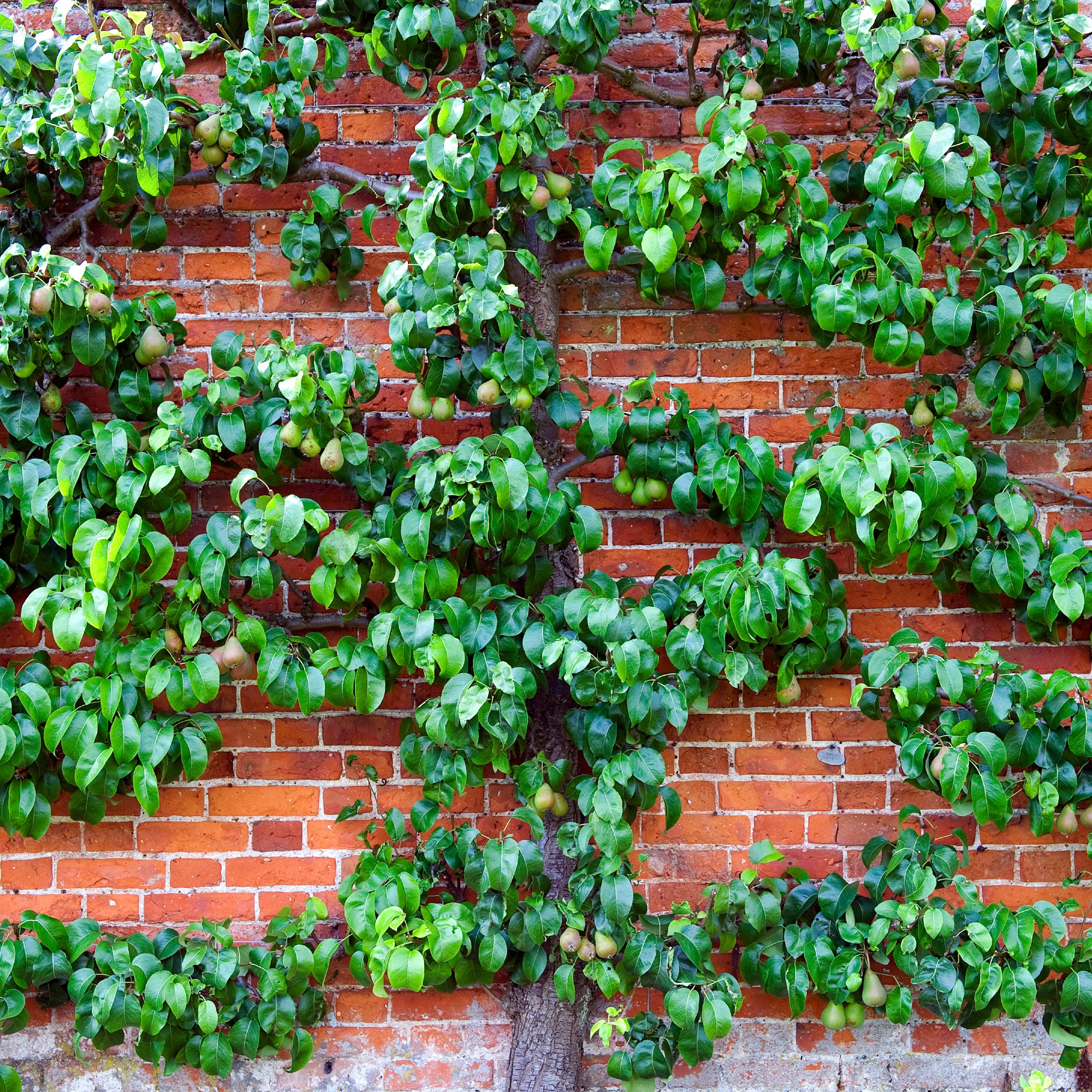
4. Hardy geraniums
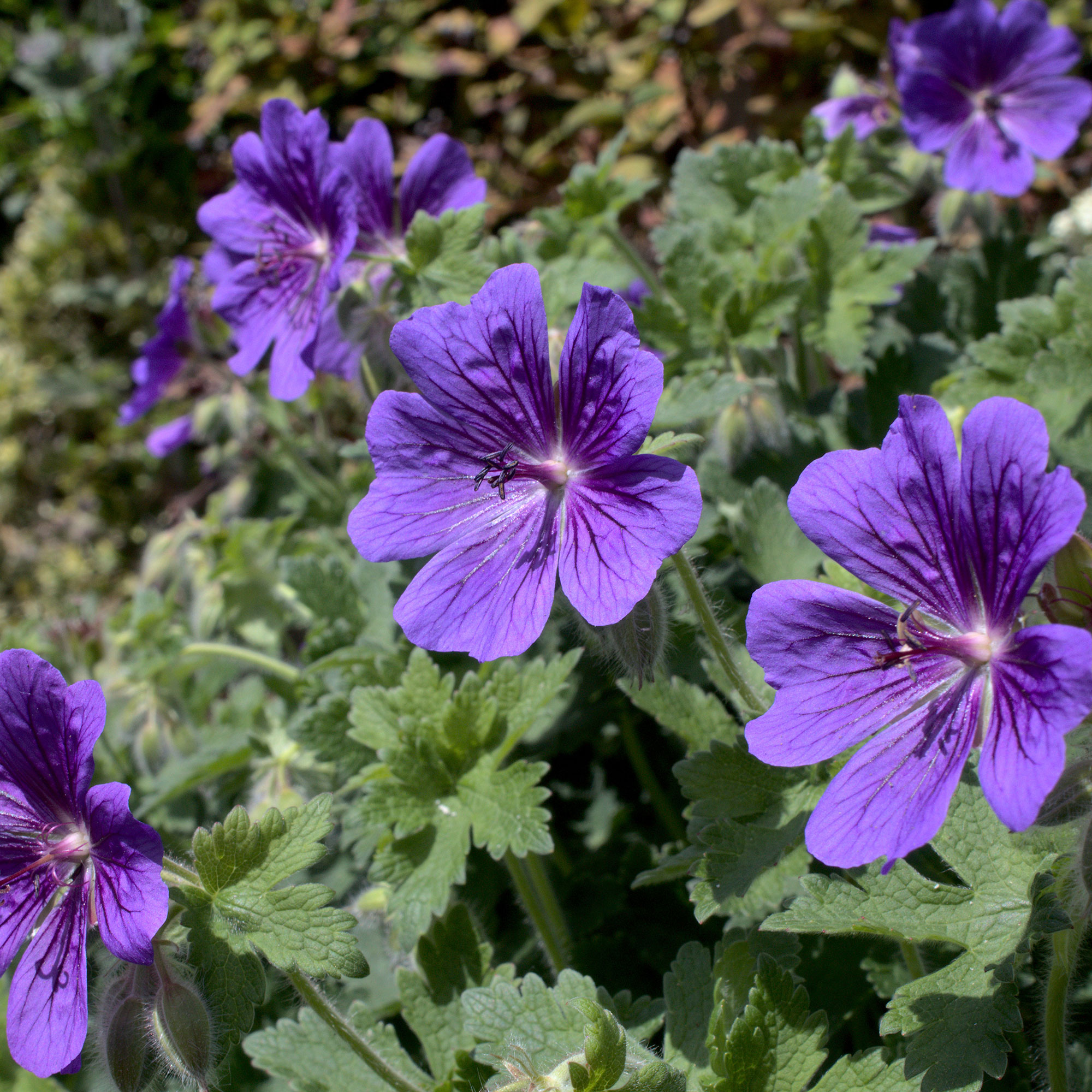
Hardy geraniums also make the list of what to prune in July, if you're stuck wondering what to do with geraniums after flowering.
'Hardy geraniums are popular perennials which are both easy to grow and long-flowering,' Lucie says.
'To encourage fresh foliage and late summer flowering, you can prune hardy geraniums back to almost ground level or basal growth, and the plants will only take a few weeks to fill out again.'
Geraniums are generally easy to care for, but if you find your geranium leaves turning red, there are ways you can step in and save them.
5. California lilac
Not all spring flowering varieties can be pruned in July, but there are some exceptions.
'Ceanothus, or California lilac, are pruned depending on their flowering time and whether they are evergreen or deciduous,' says Lucie.
'If you have a late spring flowering evergreen with gorgeous blue or purple flowers, then wait for it to finish flowering and use your secateurs to trim back by a third to a half. You might find you need to prune again later in the year.'
Knowing how to prune Ceanothus will encourage healthy new growth.
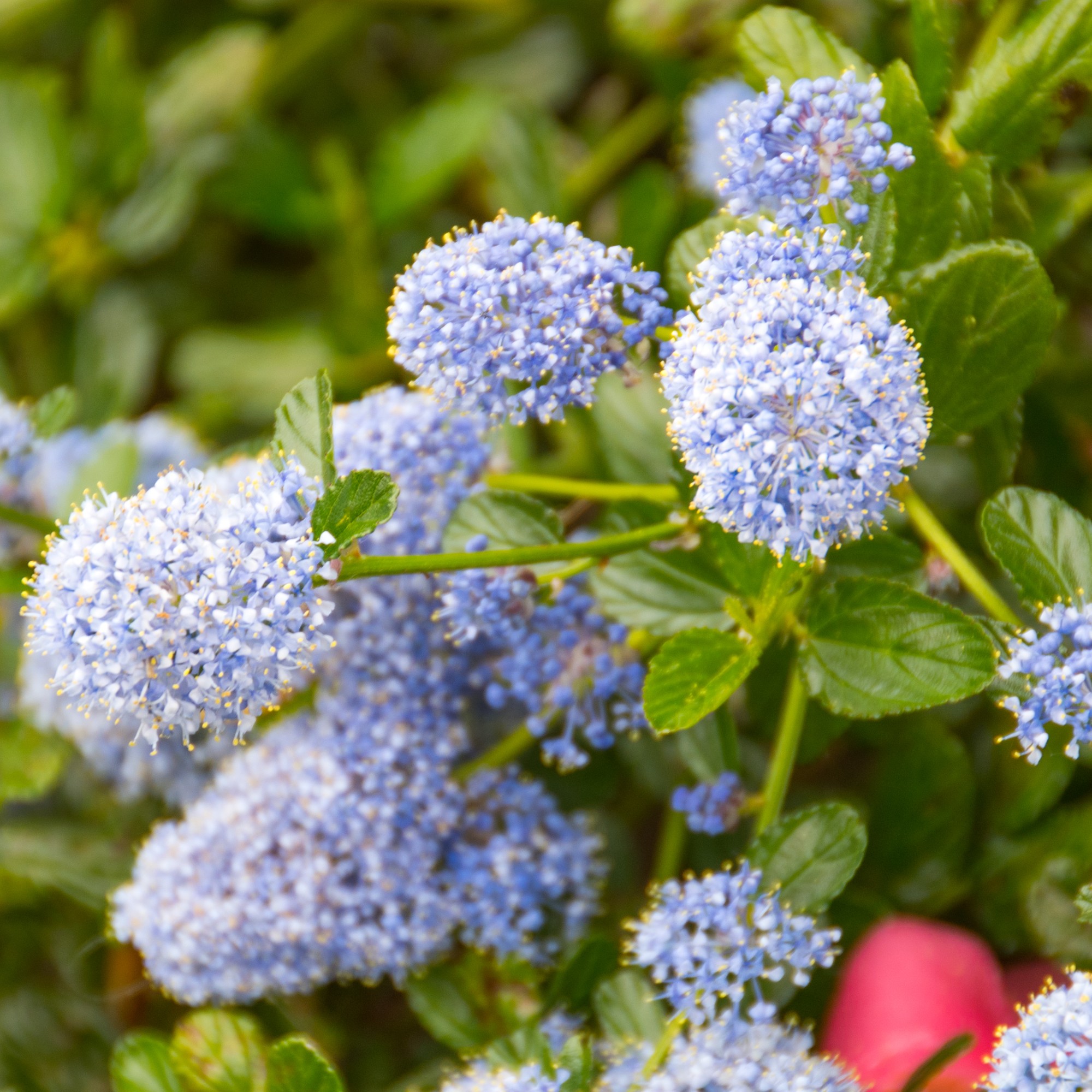
FAQs
Is it OK to trim hedges in summer?
'Be mindful that hedges are a valuable habitat for lots of wildlife,' says Daniel Reynolds, Director of Business Development at Thomson Environmental Consultants. 'In particular, hedges make excellent spots for birds to nest. Birds, their eggs and active nests are legally protected, so you should take care to avoid disturbing or accidentally damaging the nest during the nesting season.
'Nesting season runs between March and September each year, so if you plan to cut your hedges in summer, it is important to check thoroughly for nesting birds. Take some time before you start cutting to watch for adult birds going in and out of the hedge. If you see birds taking frequent trips in and out, this could indicate that there could be a nest, especially if adult birds are carrying food.
'If you don’t see adult bird activity, proceed cautiously whilst cutting the hedge. Look into the hedge before cutting each section to check for any nests.
'On the other hand, if you do spot activity, wait three or four weeks before doing another check. It’s likely that the chicks will have fledged during this time but check inside the hedge to make sure. Birds sometimes have a second (and even third) hatch of eggs, so the nest may still be in use.'
What shouldn't you prune in summer?
'In summer, avoid pruning most spring-flowering shrubs and trees, as they typically set their buds in the previous year,' says Chris Cooper, Senior Product Marketing Manager at Hayter Mowers. 'Pruning them in summer can reduce the number of flowers for the next season.
'Also, avoid pruning plants which are already stressed by heat or drought conditions as this can further weaken them.
'Finally, be cautious with heavy pruning. This can expose plants to sunburn and reduce their ability to photosynthesise effectively.'
Now you know what to prune in July, you can set about tidying your garden this weekend.

Sophie joined the Ideal Home team as Gardens Editor in June 2024. After studying English at Royal Holloway, University of London, she began writing for Grow Your Own, which spurred on her love of gardening. She's tried growing almost every vegetable under the sun, and has a soft spot for roses and dinnerplate dahlias.
As Gardens Editor, Sophie's always on the lookout for the latest garden trend. She loves sharing growing hacks for every space, from herbaceous borders to balconies.
-
 Zoe Ball's colourful kitchen island shows how easy it is to create a characterful cooking space - here's how she did it
Zoe Ball's colourful kitchen island shows how easy it is to create a characterful cooking space - here's how she did itBeing brave with colour will reap huge rewards
By Holly Cockburn
-
 7 plants that will make your patio smell gorgeous - the top fragrant picks experts recommend potting up
7 plants that will make your patio smell gorgeous - the top fragrant picks experts recommend potting upFrom aromatic flowers to fragrant herbs
By Kayleigh Dray
-
 I won't gatekeep - Magimix's new small kitchen-friendly mini chopper is my secret to delicious lazy dinners
I won't gatekeep - Magimix's new small kitchen-friendly mini chopper is my secret to delicious lazy dinnersMy homemade pesto pasta has never been better
By Holly Cockburn
-
 George Home’s sold-out striped parasol is finally back in stock - but this elegant design is expected to sell out again fast
George Home’s sold-out striped parasol is finally back in stock - but this elegant design is expected to sell out again fastI can't get enough of its whimsical design, too
By Kezia Reynolds
-
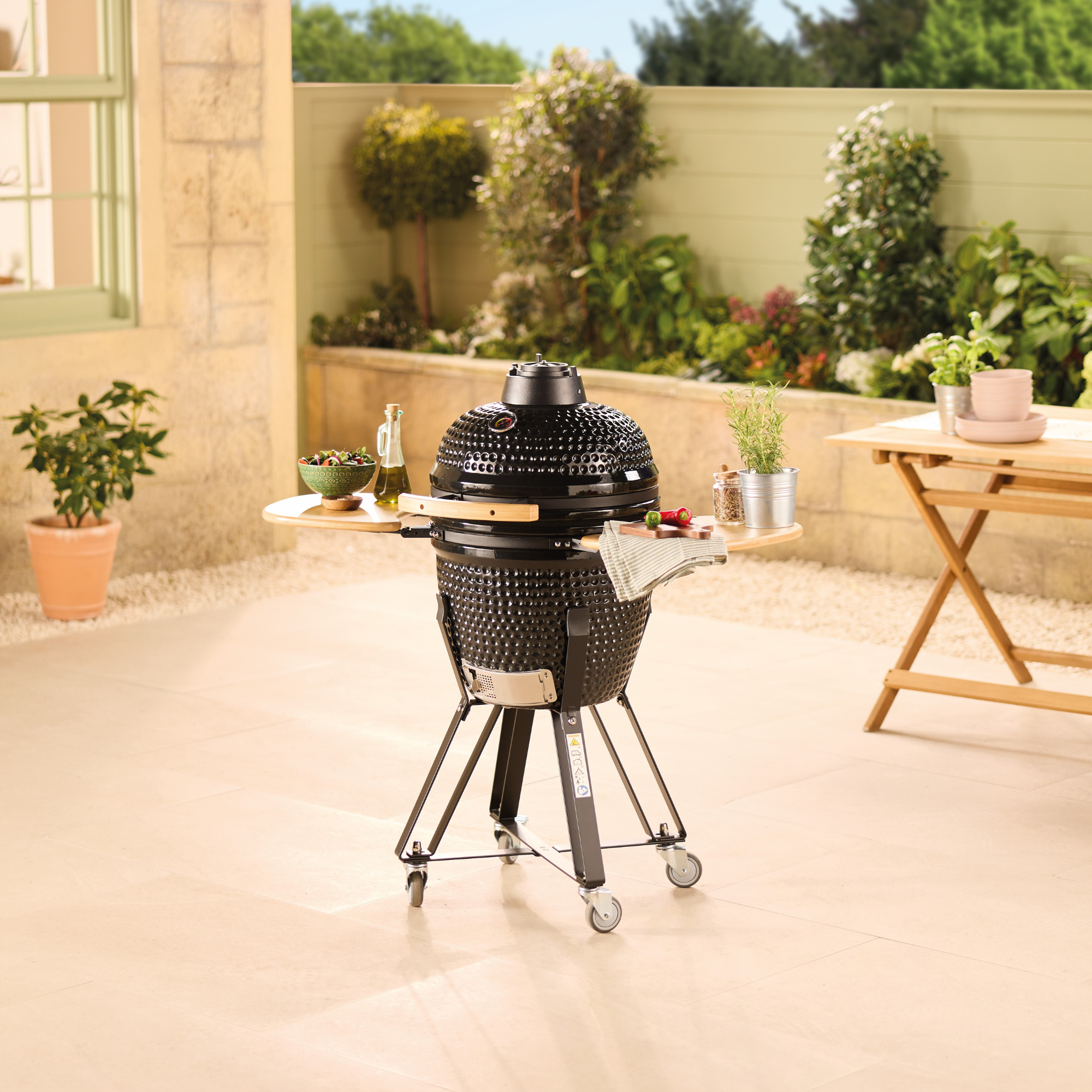 Aldi’s cult Kamado BBQ is returning to stores and it's £100 cheaper than before
Aldi’s cult Kamado BBQ is returning to stores and it's £100 cheaper than beforeThis budget BBQ is only a fraction of the price of this celebrity favourite
By Kezia Reynolds
-
 Shoppers can’t get enough of The Range’s lemon tree, but I’ve found an even cheaper bestseller at B&Q - it’s perfect for a Mediterranean look
Shoppers can’t get enough of The Range’s lemon tree, but I’ve found an even cheaper bestseller at B&Q - it’s perfect for a Mediterranean lookWelcome the summer with this glorious fruit tree
By Kezia Reynolds
-
 I'm a stylist with an eye for expensive-looking high street finds – these 6 garden furniture pieces at Dunelm are on my radar
I'm a stylist with an eye for expensive-looking high street finds – these 6 garden furniture pieces at Dunelm are on my radarThese pieces all look more than their price tag
By Laurie Davidson
-
 The 6 outdoor lights from Habitat that I'm choosing between to make my outdoor space look more expensive this summer
The 6 outdoor lights from Habitat that I'm choosing between to make my outdoor space look more expensive this summerI couldn’t believe some of the prices
By Ellis Cochrane
-
 Aldi is launching a £200 day bed with four different features - its sleek design is suited to the whole family
Aldi is launching a £200 day bed with four different features - its sleek design is suited to the whole familyYou don't want to miss out on this Specialbuy
By Kezia Reynolds
-
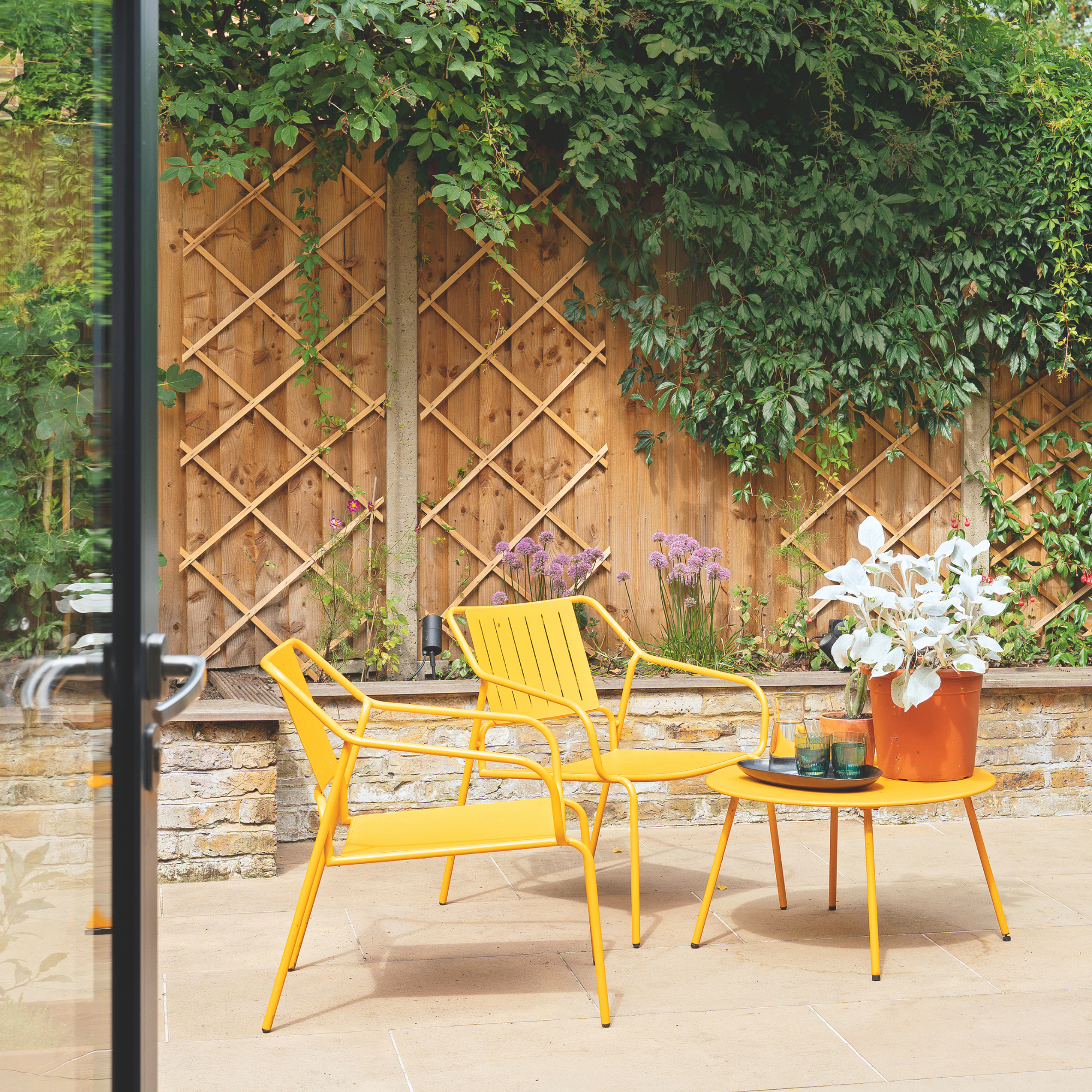 I’m seeing pastel garden furniture at all my favourite brands this spring, but QVC’s sorbet collection impressed me the most
I’m seeing pastel garden furniture at all my favourite brands this spring, but QVC’s sorbet collection impressed me the mostFresh pastel shades are a great way to liven up your outdoor space
By Kezia Reynolds
-
 I spent the afternoon looking through Wayfair's garden sale – these are the 6 pieces I'm buying immediately for summer
I spent the afternoon looking through Wayfair's garden sale – these are the 6 pieces I'm buying immediately for summerThese are my must-have garden buys from the sale
By Holly Reaney